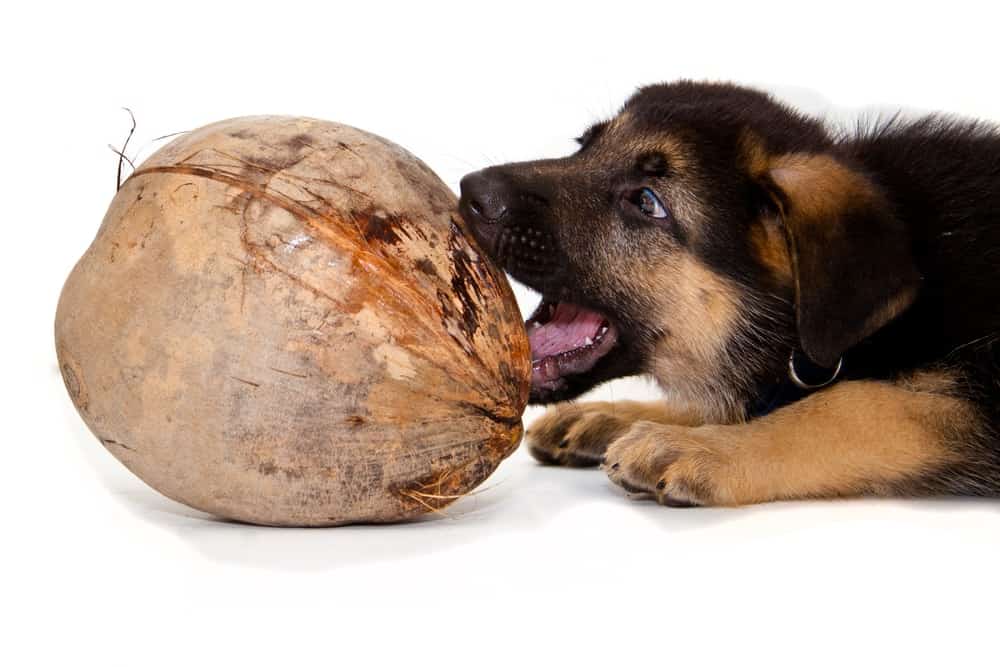“This post contains affiliate links, and I will be compensated if you make a purchase after clicking on my links.”
Unless you’re crawling out from under a rock today, you’ve heard a lot about the healing properties and health benefits of coconut oil. But did you know this popular “superfood” also has a wealth of benefits for your dog? If you’ve got a dog, you should also have coconut oil in your pantry!

You’ve seen it used in everything from food to face cream – but what, exactly, is it? As the name implies, coconut oil is an edible oil extracted from mature coconuts. It’s very high in healthy fatty acids and saturated fats (the “good fats”), which is why it has so many benefits for both you and your pets.
Let’s explore just a few of the many benefits your dog can get from the addition of coconut oil into their diet:
It’s great for their skin and coat.
The moisturizing property of coconut oil can provide immediate relief for dogs who suffer from itchy, dry, or flaky skin. Use it topically to soften and freshen up your dog’s fur. Simply rub a small amount of coconut oil through your pup’s fur and gently massage it in. A little bit goes a long way!
Given regularly as a supplement, coconut oil will actually improve the condition of your dog’s skin and coat.
It helps with digestion (and tastes great!)
Dog parents whose pups have sensitive stomachs will be happy to learn that coconut oil can soothe a dog’s digestive system at the same time it increases nutrient absorption.
It’s a natural insect and parasite repellent.
The lauric acid in coconut oil (one of those healthy fatty acids we mentioned earlier) happens to be a natural flea repellent. It can also be used as an effective defense against internal parasites including giardia.
It has antifungal, antibiotic, and antiviral properties.
Many of coconut oil’s health benefits come from the medium-chain fatty acids (MCFC), particularly lauric acid. Lauric acid converts to monolaurin in the body. This becomes a quite effective bacteria-killer, so use it to help heal minor cuts and scrapes, hot spots, bug bites, or contact dermatitis.

How to add coconut oil to your dog’s diet:
There are a number of ways to introduce coconut oil into your dog’s diet. Most dogs love the taste, so you can easily just let your pooch lick it off the end of a spoon or mix it with his food each day.
- Organic means that the coconut oil comes from a source that has not been treated with pesticides or insecticides.
- Virgin means it has only been pressed once (many types of oils are pressed multiple times with each version being lesser quality than the first).
- Cold-pressed means they haven’t cooked the oil or added any type of chemical during the extraction process.
As is the case with anything you give your dog, be aware that too much of a good thing can quickly become a bad thing! That’s definitely the case with coconut oil.
Never give your dog more than one teaspoon per day for every 15 pounds of body weight. Start with about 1/4 that amount and work up to it to avoid an upset tummy.
Our Recommendations
Here are some of our coconut oil recommendations from Amazon:























Kelly Corey
says:Is it any certain coconut oil?? Where do I buy??